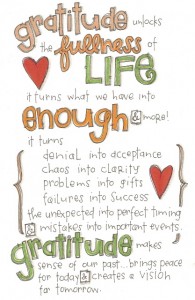In Guilt (part one) we looked at the definition of guilt, and the first two types of guilt. So let’s have a look now at the other three main types of guilt, and what to do about them.
Guilt for something you think you did: Our thoughts are so powerful we often talk about our thoughts owning us rather than the reality of us owning our thoughts! Because we can often believe the power of our thoughts without question, they can sometimes lead to irrational beliefs. For example, you wish ill to somebody through your thoughts: “I really hope their prize-winning roses die so that I may have a chance of winning the gardening competition”. Then what happens? You get what you wished for and those flowers die. We irrationally feel guilty, as if our thoughts alone have caused those flowers to die. In some small, unheard, area of your mind, you know that you didn’t really cause those flowers to die – after all, you are not omnipotent – so why do you feel so guilty? Remember that actions, not thoughts cause harm, and let the guilt go.
Guilt that you didn’t do enough to help someone: If you, like many others, are kind hearted, conscientious and caring, then you are more prone to feeling this type of guilt. You may have given hours of your free time to help somebody who was maybe ill, or unhappy, lonely or  struggling. However, you may also find that however much you do, you still feel that it wasn’t enough when that person is still sad, lonely, or unwell. The guilt starts to get to you and you try desperately to carry on helping them, despite the toll it’s taking on you. This type of emotional and/or physical burnout is sometimes called ‘compassion fatigue’ and is usually used to describe a condition found amongst professional helpers. Adding to the overall emotional drain of the situation is the guilt you overlay on top of the fatigue because you think you should be doing more. What is most important in this situation is to separate your feelings around why you want to help. Is it because you just want to be of help and support, or because you fear that the guilt will overwhelm you if you don’t? Acting out of guilt can only drain you further and ultimately make you a less effective helper.
struggling. However, you may also find that however much you do, you still feel that it wasn’t enough when that person is still sad, lonely, or unwell. The guilt starts to get to you and you try desperately to carry on helping them, despite the toll it’s taking on you. This type of emotional and/or physical burnout is sometimes called ‘compassion fatigue’ and is usually used to describe a condition found amongst professional helpers. Adding to the overall emotional drain of the situation is the guilt you overlay on top of the fatigue because you think you should be doing more. What is most important in this situation is to separate your feelings around why you want to help. Is it because you just want to be of help and support, or because you fear that the guilt will overwhelm you if you don’t? Acting out of guilt can only drain you further and ultimately make you a less effective helper.
Guilt that you’re doing better than someone else: The term ‘survivor guilt’ is applied to those people who survive a traumatic event in which others do not survive, or are perceived to suffer more deeply than the survivor. This condition is recognised by professionals who work with those combat veterans who outlive their fellow troops.
Survivor guilt can also be felt by those who feel they have made a better life for themselves than their family or friends or even (if you are very compassionate) than those who are simply less fortunate. This irrational form of guilt can deeply affect the quality of a person’s life as  he may well over-compensate financially, emotionally or in other ways. The only way you can effectively cure survivor guilt is to turn that guilt into gratitude. Remind yourself how grateful you are for your life and the opportunities you have had. Also remember that others would derive no benefit should you fail (or not have survived a disaster), and so you may as well appreciate and enjoy your success.
he may well over-compensate financially, emotionally or in other ways. The only way you can effectively cure survivor guilt is to turn that guilt into gratitude. Remind yourself how grateful you are for your life and the opportunities you have had. Also remember that others would derive no benefit should you fail (or not have survived a disaster), and so you may as well appreciate and enjoy your success.
You can’t live a completely guilt-free life however, by being consciously aware of, monitoring, your thoughts and converting guilt to remorse, you can keep it within manageable bounds. If there is a positive side to guilt, it is that it can help you to understand yourself better and to question your motives, your attitudes and your actions. By recognising when you have done wrong, you can seek to recompense, let go of the destructive feelings of guilt and behave differently in the future.
Free Your Thoughts – Life Your Life!


 over them – not fact. When we exercise power over our feelings we are choosing, to a much greater extent, how we feel. Our feelings are largely influenced by our thoughts and our thoughts are the result of our previous experiences, influences and beliefs in any situation. Therefore if you have learned to feel guilty if somebody around you is upset, you will most likely feel guilty. If your first reaction to perceived aggression is to retaliate in
over them – not fact. When we exercise power over our feelings we are choosing, to a much greater extent, how we feel. Our feelings are largely influenced by our thoughts and our thoughts are the result of our previous experiences, influences and beliefs in any situation. Therefore if you have learned to feel guilty if somebody around you is upset, you will most likely feel guilty. If your first reaction to perceived aggression is to retaliate in  envious, upset or offended, don’t react, pause for thought. Literally. Be
envious, upset or offended, don’t react, pause for thought. Literally. Be 